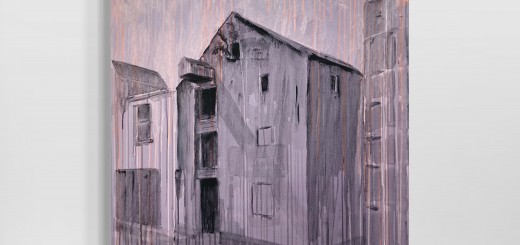The criminalisation of abortion in Northern Ireland

In the April of 2016, a woman in the UK has been sentenced for the crime of having an abortion. I still can’t quite believe I am writing this, but it’s true: a woman in Northern Ireland has been found guilty and been given a three month sentence, suspended for two years. Say what?
Northern Ireland legislation on abortion derives primarily from the 1861 Offences against the Person Act. Technically abortion is legal in certain circumstances, but termination is refused (to 95% of women), even if they have been raped, suffered incest, given a diagnosis of foetal abnormality or their health is at risk from the pregnancy. The Abortion Act of 1967 is adopted in England, Wales and Scotland. But not in Northern Ireland. Amnesty International has called current legislation ‘draconian’.
A woman living in Northern Ireland seeking an abortion will most likely travel to England or elsewhere in Europe to access the service. Women are not entitled to access the National Health Service in the UK; the procedure must be paid for privately. The charity Marie Stopes UK that provides sexual and reproductive health services offer a discount for women traveling from Northern Ireland. But once travel and accommodation is included costs can be as much as £2,000, making this option prohibitive for many.
A more commonly-used alternative is purchasing pills online. The pills in question, most commonly called Mifepristone and Misoprostol are listed as safe by the World Health Organisation and used commonly elsewhere in the world, particularly in the US and Scandinavia. But as abortion is unlawful here a GP can’t give a prescription, so acquiring pills has to be done under the radar – as the current case shows – it is a criminal offence.
In one case, a woman bought abortion pills online when she couldn’t save up enough to travel to England. Her housemates reported her to the police. She has recently been charged.
In recent years, purchasing pills has been made more visible: two open letters to the Public Prosecution Service in Northern Ireland were signed by women declaring they have assisted abortion, and call on the police to arrest them for breaking the law. The first letter (2013) was signed by 100 women, the second (2016) by 200.
The letters were organised by Alliance for Choice (a group which campaigns for Great Britain’s 1967 Abortion Act to be extended to Northern Ireland), and were issued largely in support of two women in Northern Ireland facing prosecution.
In one case – the woman who has recently been charged – she bought abortion pills online when she couldn’t save up enough to travel to England. Her housemates reported her to the police.
In another case a mother faces charges for obtaining abortion pills for her underage daughter when she became pregnant.
The Alliance for Choice open letters did not elicit any action by the PSNI. According to Alliance for Choice on both occasions the police said they were ‘investigating’ but no one who signed the letter ever heard from the police.
Alliance for Choice made a call for the women recently facing prosecution to get in touch. While their open call for action, via the letters, has remained a non-issue, it feels uncomfortably right that the prosecution service has decided to try those who have access to the least possible support.
So what’s happening at a political level?
Northern Ireland’s first female leader, Democratic Unionist Party (DUP) Leader Arlene Foster, made her intentions clear earlier this year: “I would not want abortion to be as freely available here as it is in England and don’t support the extension of the 1967 act.” She has conceded the need to address the potential breach of British and European Human Rights Laws by denying abortions to women who have become pregnant through rape. But the repercussions of reforming legislation in this way, rather than seeing the extension of the 1967 Act, are potentially harmful: Eileen Calder co-founder of the Rape Crisis and Sexual Abuse Centre in Belfast has pointed out that ‘many women in unwanted and crisis pregnancies might to go their GP or local hospital and say they were raped and demand an abortion in those circumstances. In these cases the onus would be on medics to then report a crime to the Police Service of Northern Ireland, which in turn could lead to innocent men who get women pregnant after consensual sex being arrested, questioned and possibly charged over a crime they did not commit.”
In February this year both the nationalist SDLP and the unionist DUP ensured neither amendment to abortion law was passed: 59-40 voted against legalising abortion when there is a fatal foetal abnormality, and 64-30 voted against any law change in the case of rape. Nothing has changed. Next steps seem to largely involve working groups and reporting back from working groups – a process which will take at least 6 months.
That the decision-making process is male-dominated shouldn’t have to be an issue per se, (and it’s certainly not the case that all female MLAs vote for an extension of the rights) but when an MLA said that he did not feel comfortable “discussing what a woman should do with her body” then obviously it is – so men are there to vote on ‘male’ issues? And reproductive rights are solely a domain for ‘the women’? Thankfully he added that MLAs ‘did have a responsibility to legislate’ – what a relief.
Currently there is no legal compunction on the Assembly to change the law. (Presumably Westminster doesn’t care – I have struggled to find evidence of any comments on the issue). In November 2015 a high court judge ruled that Northern Ireland’s almost outright ban on abortion breaches the human rights of women and girls, including rape victims. A welcome ruling to many, but it didn’t take long for the appeals to be lodged, by none other than Northern Ireland Justice Minister David Ford and Northern Ireland Attorney General John Larkin. The appeal will be heard on 20 June.
I don’t know if there are any recent opinion polls in Northern Ireland on the issue. I can’t really work out what the next steps in the Northern Irish Assembly are. I can’t find a reading on the Westminster position. What I can find, and what I can feel, is the climate of fear that health professionals, women and their families are living in.
Further information
Organisations
http://allianceforchoiceni.org
Campaigning for the extension of the 1967 Abortion Act to Northern Ireland
Digital community of women who have had abortions, and individuals and organizations that support abortion rights
https://www.mariestopes.org.uk
There is a Marie Stopes clinic in Belfast City Centre, opened in 2012. They are the only charity to provide the abortion pill, but access to treatment is subject to Northern Irish law. Anti abortion protestors have been stationed outside the clinic since it opened and a team of volunteers are in place to act as escorts for women entering the building. In November 2014, anti-abortion protester Bernadette Smyth, leader of the Precious Life group, was convicted of harassing the clinic’s Director Dawn Purvis.
Article about the Indian company that sources abortion pills that are freely available across India and sends them to places where women can’t get abortions, places such as Northern Ireland.
Recent abortion cases in the media
Due to foetal abnormality Sarah Ewart’s baby had no chance of survival. She spoke out about her experience of having to travel to England for an abortion: http://www.bbc.co.uk/news/uk-northern-ireland-24458241
A helpful overview of the current legal framework and next steps: http://www.telegraph.co.uk/women/life/abortion-law-madness-whats-really-going-on-northern-ireland/
In response to the ruling in April 2016 in Belfast: http://www.independent.co.uk/voices/today-in-the-uk-a-woman-was-sentenced-for-the-crime-of-having-an-abortion-yet-we-act-outraged-at-a6968356.html
The abortion situation in Ireland
Abortion is legal in Ireland only when a pregnant woman’s life is at risk, including the risk of suicide. (This new law was passed in 2013). Abortion is not legal in cases of rape, incest or foetal anomalies. Information on abortion services outside the state is also constitutionally protected. Legally the IFPA (Irish Family Planning Association) can provide information on abortion services abroad in a face-to-face-counselling session. It is not legal to provide this information over the telephone. Medical practitioners found to be breaking the law can face 14 years in prison.
More information from Amnesty International here: https://www.amnesty.org/en/latest/campaigns/2015/06/6-outrageous-facts-about-abortion-in-ireland/















